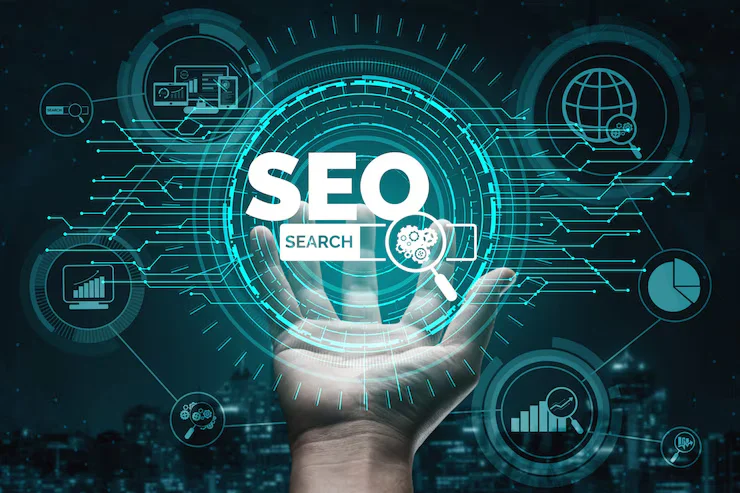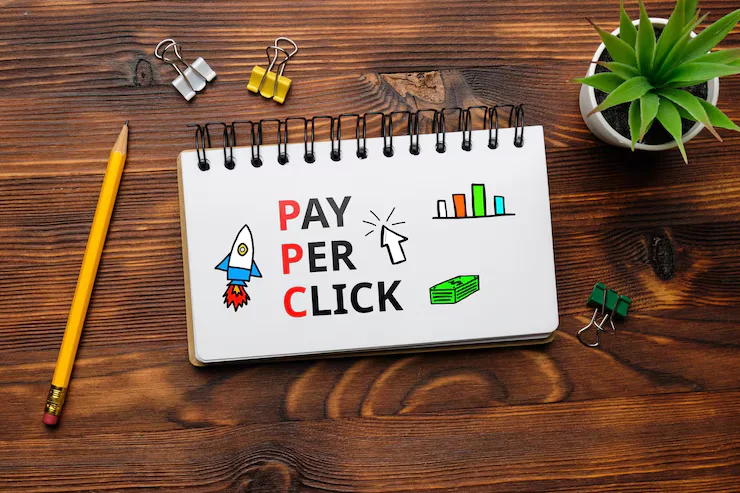Home / Blog

SEO or PPC for business – which is right for you? Understand the pros & cons of both strategies and how a renowned digital marketing company can help.
In today’s digital landscape, businesses are constantly looking for ways to increase their online presence, drive traffic, and generate leads. The two most common strategies are SEO (Search Engine Optimization) and PPC (Pay-Per-Click Advertising). But which one is right for your business?
While SEO focuses on improving organic search rankings over time, PPC delivers immediate visibility through paid ads. Both strategies have their advantages and drawbacks, and the choice depends on factors like budget, competition, and business goals.
So, should you choose SEO or PPC for business growth? Or is a combination of both the best approach? Let’s explore the differences, benefits, and ideal use cases for each.

SEO, or Search Engine Optimization, is the process of optimizing a website to improve its ranking on search engines like Google, Bing, and Yahoo. The goal is to attract organic (unpaid) traffic by making the website more visible in search results.
✅ On-Page SEO – Optimizing website content, meta descriptions, images, and internal links.
✅ Off-Page SEO – Building backlinks, social media engagement, and guest blogging.
✅ Technical SEO – Improving site speed, mobile-friendliness, and structured data.
✅ Local SEO – Optimizing Google My Business listings and targeting location-based keywords.
SEO requires time and effort, but once established, it provides sustainable and cost-effective results.

PPC, or Pay-Per-Click Advertising, is a digital marketing strategy where businesses pay for each click on their ads. Platforms like Google Ads, Facebook Ads, and LinkedIn Ads allow companies to place targeted ads in front of potential customers.
💰 Keyword Bidding – Choosing high-intent search terms for advertisements.
📢 Ad Copywriting – Creating compelling headlines and descriptions to attract clicks.
🔗 Landing Page Optimization – Ensuring the page visitors land on is engaging and leads to conversions.
📊 Budget and Bidding Strategy – Managing daily ad spend and maximizing ROI.
PPC delivers immediate results but requires ongoing investment to maintain visibility.
| Factor | SEO | PPC |
|---|---|---|
| Cost | Low ongoing cost, but requires upfront effort | High cost per click, but delivers instant results |
| Speed | Takes months to see results | Provides immediate traffic |
| Longevity | Sustainable long-term traffic | Traffic stops when the budget runs out |
| Credibility | Higher trust due to organic ranking | Lower trust as ads are labeled “Sponsored” |
| Scalability | Grows over time with continuous efforts | Scales instantly with more budget |
Both methods have their strengths, so let’s analyze when you should use SEO and when PPC makes more sense.
SEO is a smart choice if you:
✅ Want to build long-term online authority.
✅ Prefer sustainable, organic traffic rather than paid ads.
✅ Have time to invest in content creation and optimization.
✅ Want to rank for keywords that will benefit your business in the long run.
Best for: Local businesses, bloggers, e-commerce sites, and companies in competitive industries.
PPC is ideal if you:
✅ Need quick traffic and leads.
✅ Have a flexible budget for digital ads.
✅ Want to test a new product or service.
✅ Are in a highly competitive industry where SEO takes too long.
Best for: Startups, product launches, seasonal sales, and short-term campaigns.
Rather than choosing one over the other, combining SEO and PPC can bring the best results.
🔹 Use PPC for immediate traffic while SEO builds long-term visibility.
🔹 Analyze PPC performance to refine SEO keyword strategy.
🔹 Re-target PPC visitors with SEO-driven content.
🔹 Dominate search results by appearing in both paid and organic listings.
By leveraging both SEO and PPC, businesses can create a holistic digital marketing strategy.
❌ Slow results – It takes months to rank on Google.
💡 Solution: Be patient and consistently optimize your website.
❌ Google Algorithm Updates – Search rankings fluctuate due to algorithm changes.
💡 Solution: Stay updated on SEO trends and adapt strategies accordingly.
❌ High competition – Some industries are harder to rank in.
💡 Solution: Focus on long-tail keywords and niche topics.
❌ High Cost Per Click (CPC) – Competitive industries have expensive keywords.
💡 Solution: Optimize ad copy, improve quality score, and refine targeting.
❌ Ad Fatigue – Users may ignore repetitive ads over time.
💡 Solution: Refresh ad creatives and test different variations.
❌ Click Fraud – Some competitors might click on ads to exhaust your budget.
💡 Solution: Use fraud detection tools and exclude suspicious IP addresses.
For businesses looking to implement the right strategy, consulting a reputed digital marketing company can provide expert insights and customized solutions.

It depends on your business goals. SEO is great for long-term traffic, while PPC provides instant results.
PPC costs vary depending on competition, keyword selection, and bidding strategy. Some industries have higher CPC than others.
Yes! Combining both can lead to better visibility, more traffic, and higher conversions.
SEO typically takes 3-6 months to see noticeable improvements.
Because PPC offers quick and measurable results, making it ideal for time-sensitive campaigns.
Choosing between SEO or PPC for business depends on budget, timeline, and goals.
🔹 SEO is best for long-term, sustainable growth.
🔹 PPC is ideal for immediate traffic and conversions.
🔹 A combination of both maximizes visibility and ROI.
If you’re unsure which strategy to adopt, the best digital marketing company in Kolkata can help you create a tailored plan for success.